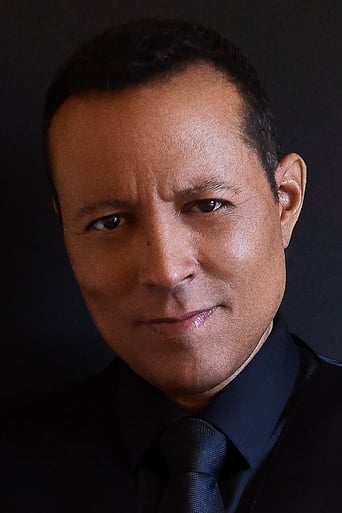Exoticalot
People are voting emotionally.
BelSports
This is a coming of age storyline that you've seen in one form or another for decades. It takes a truly unique voice to make yet another one worth watching.
Fatma Suarez
The movie's neither hopeful in contrived ways, nor hopeless in different contrived ways. Somehow it manages to be wonderful
Sarita Rafferty
There are moments that feel comical, some horrific, and some downright inspiring but the tonal shifts hardly matter as the end results come to a film that's perfect for this time.
gsxrus
I had watched this movie a while back when it came out and I cried. very good movie I recommend it this is something they left out the text books in school.In schools they usually talk about the segregation of blacks and whites and the way the school system was for black Americans. But in this case no one taught us about the ways latinos were treated in the school system. We would only hear the stories from our parents and grandparents about the struggle they also had. Thanks to the orginaztions we have now such as LULAC lets us now of the things that happened in the past so we can further fix the problems we have now and the future.
VonDark
Not growing up in the 60's (actually being born in 77), I don't have too much of an idea of what happened during these times with the exception of what my parents had told me while growing up. It was interesting to see a lot of it played out on screen.Growing up in L.A. in the time that I did though and watching this movie showed me that not much has changed. I went to schools in three distinctive area. I attended in private schools, Inner city schools and in nice suburban areas and can tell you there is a significant difference in teaching styles. It is too bad that such a movement did not change that. May I add that I do not believe it is the teachers fault, it has to do with the funds that each area receives.I feel that some of the people commenting on film have seen it or are commenting on it with a certain "bad vibe" mindset to begin with. I have seen people comment saying it was only Mexican-American or Chicano's leaving the schools, wanting to ditch or etc. That no one else was part of the Walkouts. Which leads me to the following questions; 1. If you were not part of the walkouts (I am assuming this because you say only Mexican-Americans were part of the walkouts) how do you know exactly who attended? 2. How can you tell who is Central American, South American, Mexican? It has been said that the media was not allowed to air certain footage with that being the case, please don't tell me that you got this information through the media.People on this forum have also stated that the walkouts were a waste of time that because things are the same there was no just cause for them. Would you say the same of the Anti-War Protests of then and now? I mean, we still have wars.Though in your mind, maybe these walkouts meant nothing or the causes have not changed anything now, they changed thing's then. For those people and to those people it mattered. You may say, "No one that they interviewed became a Lawyer or Doctor, etc. so what were they fighting for?", They were fighting for the education to allow them to advance in whatever path they chose.I see people put this film down because it is not the way they recalled it and that no one should glamorize this because it was a chance for gang youth to ditch school. Again, if you weren't there how do you know who attended? Every protest and every following has a few bad apples that ruin it for all, it's human nature. Does human nature make their actions acceptable? No, but it is there. (Let's remember the people who bombed SUV dealerships, as I recall they consider themselves Environmentalist and I have seen them only point out White Americans in these cases).Let us see this film as an educational film. Something to show us a part of history through someone else's eyes. Not butcher the film because of it's message, lighting, acting, writing, etc.At one point in my life I had someone tell me that she felt sorry for my generation. That I lived in a time where my generation had as many things to deal with, in different forms, as her generation of the 60's and we did not protest. We would just sit around and wait for the problems to resolve themselves. (BTW she was white not Hispanic or of Hispanic descent) If you disagree with the film, that is your opinion and accepted as we are in (technically) the land of the free. You have free speech, use it. Who know's you may direct, write or star in the next best film representing your ideas and how you see the world at hand.Final words, Watch Rashômon by Akira Kurosawa. It is a film used in Law Schools (the ones where I have attended) to show different points of view.Remember there are always 4 stories to tell, Your Story, Their Story, The Witness Story and the Truth.
nilda-5
I am a Filipina and Native American woman and I find the movie not 100% accurate in the portrayal of walkouts in Los Angeles. I went to school at Virgil Junior High and Belmont High School, during the 1960s and early 1970s and walkouts occurred yearly instigated by mostly Mexican students, with Asians, Whites, and some Blacks not participating.After the walkouts were over, the Honor Society at Virgil would help remove the graffiti from the outside walls of the buildings at Virgil that were spray painted by the Mexican students during the walkouts. These Honor Society students were mostly of Japanese decent and other Asian minorities.Never was I stopped from speaking my native tongue, Cebuano, and I had heard Spanish, Tagalog, Cebuano, Japanese, Chinese, Korean, and other non-English languages spoken without insult or reprisals from the Teachers.Restrooms were never locked for the girls to use! During the 1960s and early 1970s, Filipinos and Mexicans boys would fight nearly every other day, just because of their similarity of their cultures (Spanish surnames, taken over by Spain, etc.). Mexicans, for some reason, like to push around Filipinos, but Filipinos, in general, would not stand for that, and would fight back. The school, in general, would look the other way when this occurred in the eating areas, hallways, and outside the school grounds.What this movie seem to not show, is the hundreds of Asians and White students, who sat down quietly while watching the hundreds of Mexicans (not Central Americans) walk off the school grounds and in essences, ditch school! Mexicans only made up about a third of the school student population at Virgil Junior High and Belmont High school during the 1960s and early 1970s.Asian students, who tended to be first or second generation Americans, tended to filled the Algebra, Geometry, Trigonometry and Honor Society Clubs, get scholarships, and be accepted to a variety of prestigious universities throughout the nations. At that time, Algebra, Geometry, and Trigonometry were not required for graduation, and school Couselors moved the bright students (Asians) to these math classes. I remember only 1 or 2 Mexican or Black students in these math classes.I believe Los Angeles school personnel wanted the best for their students, as to study, no be late, not be absent, and to give their best while a student. Racism or bias was never the issue against the Mexicans students. It was just their way of achieving only their goals (ditching?) or they just created this issue by not giving their best in school, when facing competition against fellow Asian and White students!
tvelasco-2
History has a funny way of always surface when needed. If this movie is your only reference of the events that depicts...well you need to hit the books! I've seen "After SChool" specials with more concern for story telling than this movie. Too much time and effort is spent in the art direction and the story suffers. The script is forced, the delivery light and none of the characters seem committed to make anything credible as if their ethnicity was enough to sell the drama. It's a waste of the big publicity machine of HBO, dedicated to this film, may be it looks good on their resume, but they backed the wrong Latino flick.





